Should I leave a tip? How do I know food trucks are clean? We asked real food truck owners to solve all sorts of mini-mysteries!
The 9 Most Common Food Truck Etiquette Questions
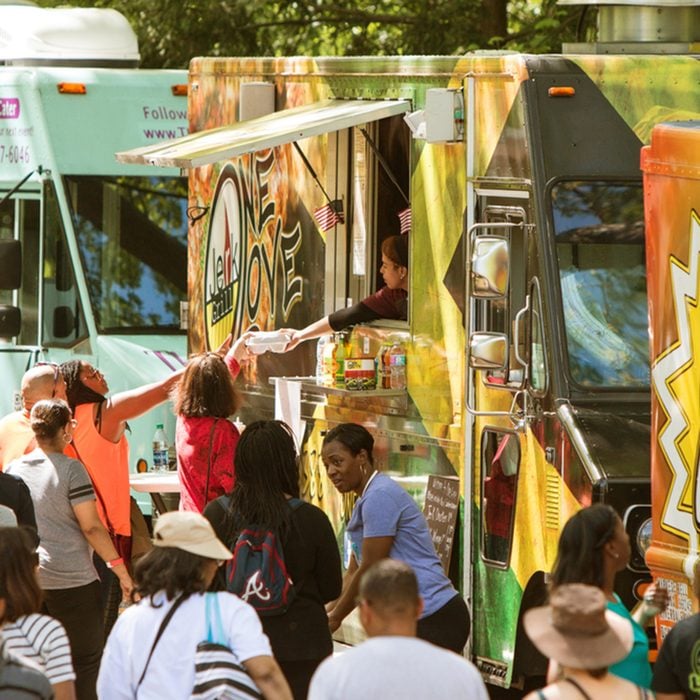
Forget the drive-thru—lunch should come to you. Food trucks are a great way to grab a quick bite, but there’s a need-to-know etiquette for ordering, paying the bill and more. To round up answers to your FAQs, we talked to some food truck owners and customers!
Psst… Here’s what to order at the top food trucks in the USA.
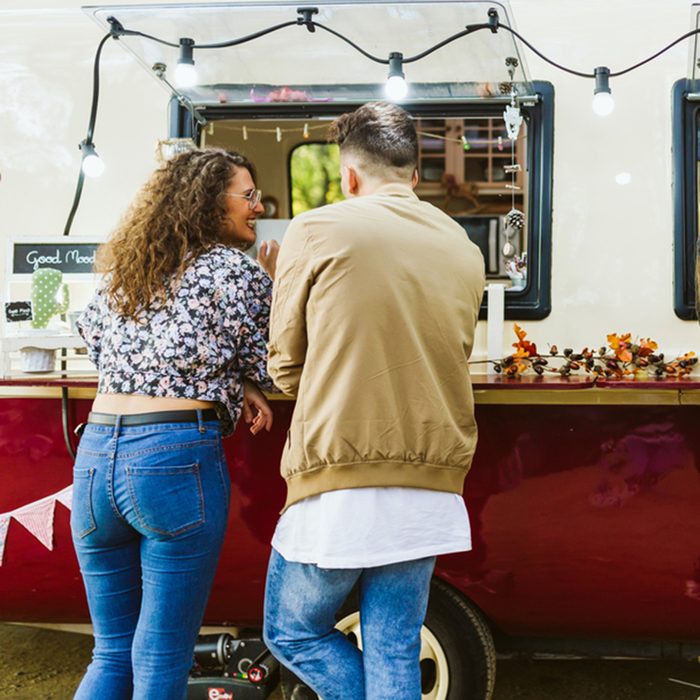
Should I leave a tip?
It might be rude to skip the tip for your waiter in a restaurant, but that definitely does not apply to food trucks. Since there’s no middleman between the chef and the customer, it’s not necessary. The food truck owners I talked to said that tips were only given for about 50% of orders. Of course, no one is ever going to discourage extra cash when you’re feeling generous!
“If there’s exceptional service or you order something special, tips are lovely and always appreciated,” says Scott Baitinger from Streetza Pizza in Milwaukee.
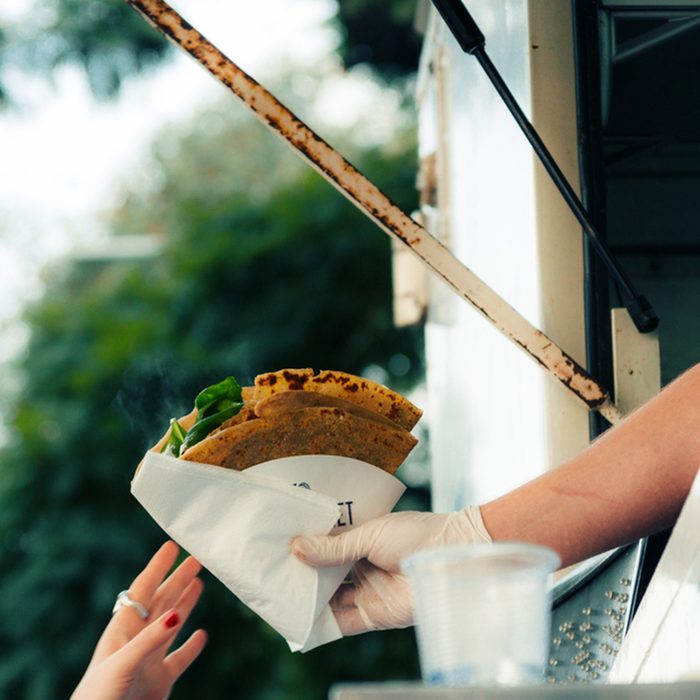
Can I pay with my credit card?
Most of the food trucks you’ll visit can accept credit and debit cards—after all, they wouldn’t want to turn away any potential customers.
“Most of our business is through credit card,” says Jami Steinberg from Chicago’s award-winning Grill Chasers truck. “We take all types of credit, and I’d say most food trucks do, too.”
Here are some super-savvy ways to save money when eating out.
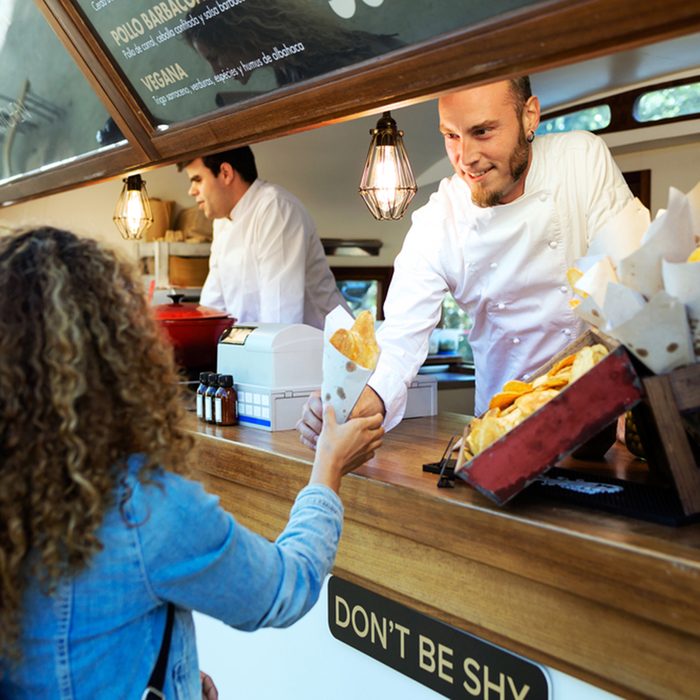
How do I know what to order?
The answer might seem obvious, but you can ask! Food trucks are operated by a much smaller staff than full-size restaurants, so the person you order from will know a lot about the food. (Most of the time, they probably help make it.) You can also watch the people in front of you as they get their food.
“As you’re waiting in line, you’ll probably see around ten things come out of the window. By watching other people get their food, you can get a clearer picture of what the truck is serving,” Baitinger says.
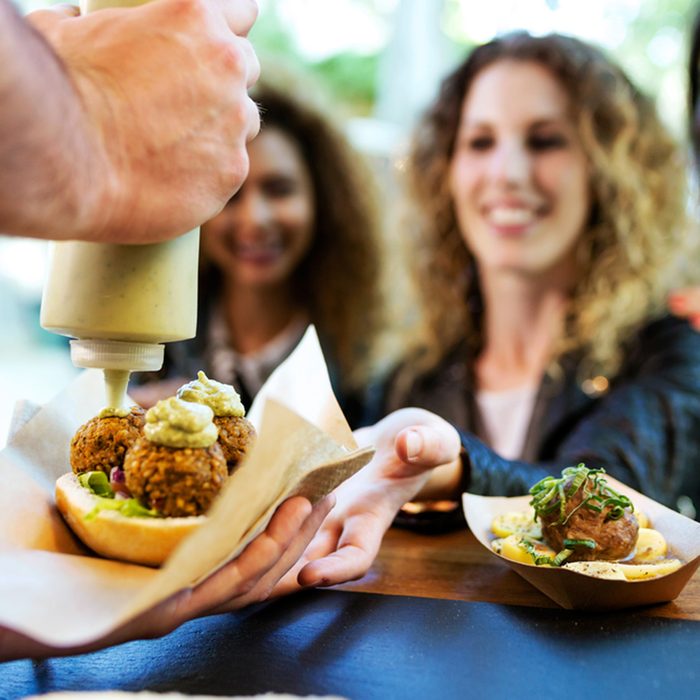
Is there anything I shouldn’t order?
“You really can’t go wrong at a food truck,” Baitinger says. He and his business partner Steve Mai have perfected their menu over the years, keeping the pizza slices that people love and dropping things that didn’t do well. “Most of the time, food trucks have their menus pared down to 5-10 items at most. There’s no space in the truck for food that would only get ordered every three weeks!”
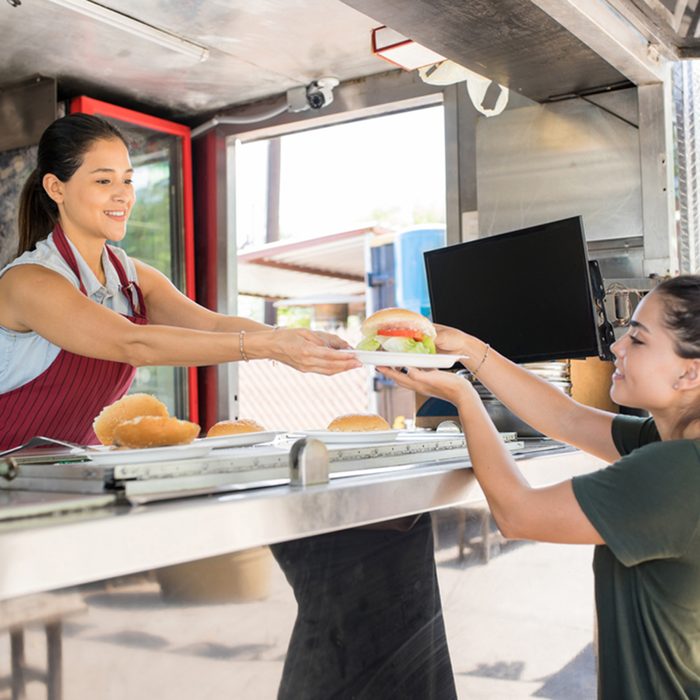
How long will my food take?
It depends on the truck. At Grill Chasers, where Jami and her husband Gary Steinberg specialize in flame-grilled chickens with one-of-a-kind marinades, a meal only takes thirty to forty seconds.
“We specialize in grilling our food fresh, so everything is made to order,” Steinberg says. “When you order, we’re very fast.”
Chicago food blogger Lucy Dwyer (known on Instagram as @theFoodieFriend) says most trucks are pretty fast. “I always get my food in eight minutes or less,” she says. “So even the slowest truck is speedier than your average restaurant.”
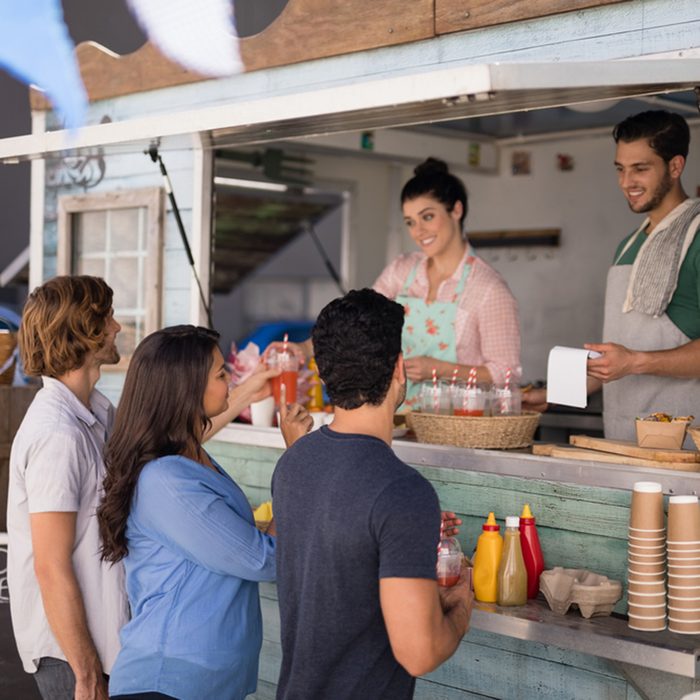
Are all food truck owners chefs?
Some are—Chef Adam Sobel worked in restaurants for about a dozen years before he started his Cinnamon Snail food truck in New York. But others, like Robert Mitchell, who introduced Philadelphia to deep-fried cheese curds with The Cow and the Curd trucks, had other careers first. (Mitchell was a teacher for 16 years!)
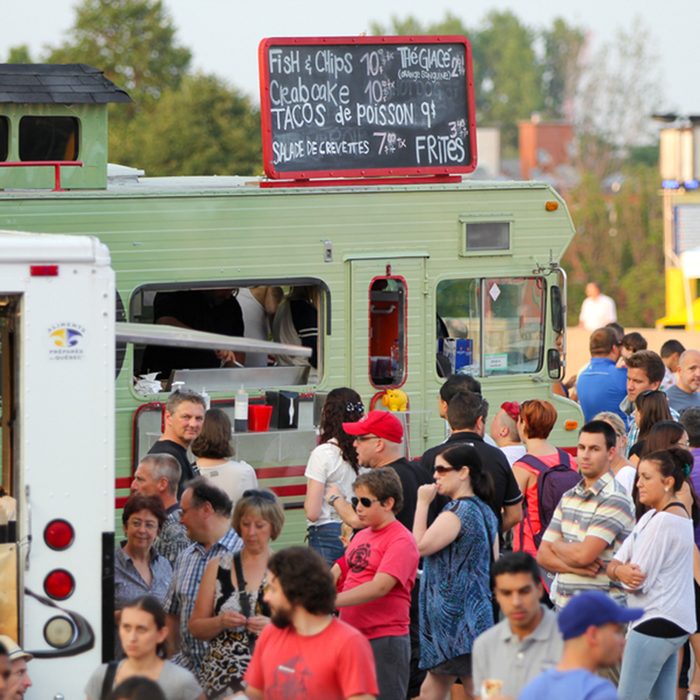
How do I find food trucks?
You can definitely find food trucks parked on random curbs, but there are also specific food truck “events” where many trucks gather in one area. Keep an eye on your local paper to see if there are any food truck events near you—it’s a great way to try lots of different cuisines at once and talk to other food-lovers! You can also use websites like Roaming Hunger to find nearby trucks.
“If you are looking for a quiet, calmer food truck experience, I’d suggest you go to a truck on a random Tuesday,” Baitinger says. “But if you don’t mind crowds, food truck events are great places to talk to other people and find great food!”
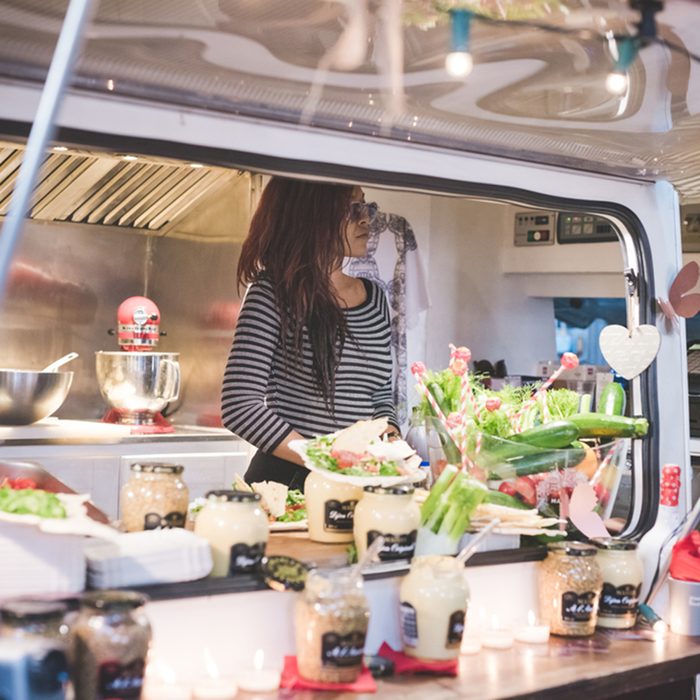
How do I know food trucks are clean?
Look for a sticker or piece of paper attached to the inside window: the license. Most food trucks are required by law to post this somewhere visible, although there are some regional exceptions. Food trucks are required to follow guidelines relating to cleanliness and safety, meaning your food is coming from an environment you can trust. Inspectors visit food trucks as often as they visit restaurants!
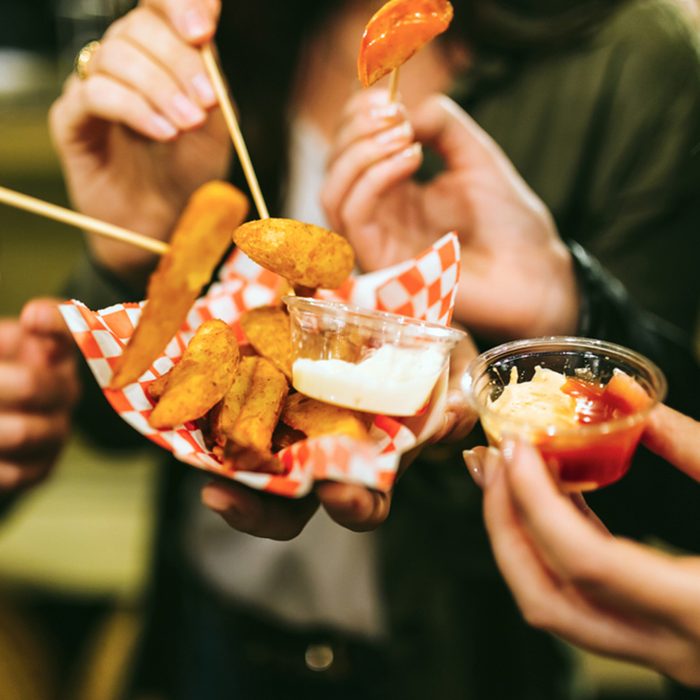
Is owning a food truck easy?
It might seem simpler than running a full restaurant, but the food truck owners I spoke to emphasized that there are challenges that come with operating in such a small space. For every event that a food truck attends, they’ve got to plan ahead—a truck must estimate how much they’re going to sell before they even open up shop. (There’s no space in the refrigerator for extra!)
